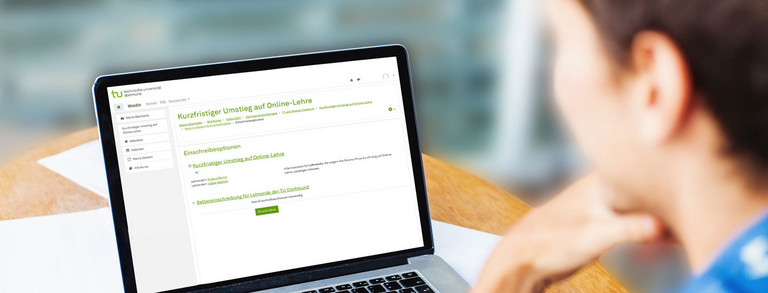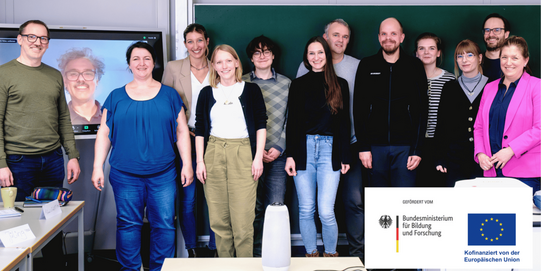PRAESCO Project Kick-Off: Hybrid Presence and Collaboration in European Networks for Agile Work Practices

The Challenge of Hybrid Collaboration
In recent years, the way we work has changed dramatically. The COVID-19 pandemic accelerated the adoption of remote work, making tools like Teams, Zoom, and Miro indispensable. While fully in-person or fully virtual meetings usually run smoothly, hybrid formats—where some participants are physically present while others join remotely—pose significant challenges. Remote participants often feel left out, spontaneous discussions happen in isolated groups, and ensuring a balanced moderation and seamless technical setup can be demanding. As a result, in-office attendees tend to be more visible and actively engaged than their remote counterparts, creating a socio-technical asymmetry.
Enhancing Low-Threshold Communication
The PRAESCO project (Hybrid Presence and Collaboration in European Networks for Agile Work) aims to address these issues. The goal is to analyze hybrid collaboration in complex, innovation-driven work environments and develop solutions to enhance both efficiency and inclusivity. "At TU Dortmund, we are developing a haptic-digital device designed to improve subtle, low-threshold communication—such as nodding in agreement—helping remote participants feel more physically present in the room. This should increase engagement and emotional connection without being intrusive," explains Prof. Jens Gerken.
The research focuses on two specific hybrid work settings: structured meetings and informal office collaboration. Using field-based studies, the project links agile collaboration requirements with cutting-edge hybrid work technologies. An inclusive approach is key, aiming to remove barriers and leverage hybrid work configurations to enhance workplace participation, particularly for individuals with disabilities.
The Research Consortium
PRAESCO is a collaboration between TU Dortmund (from ihri: Prof. Dr. Jens Gerken and Dr. Max Pascher) , the Institute for Work and Technology (IAT) at Westphalian University of Applied Sciences, University of Siegen, and Colenet GmbH, a consultancy specializing in agile transformation.


